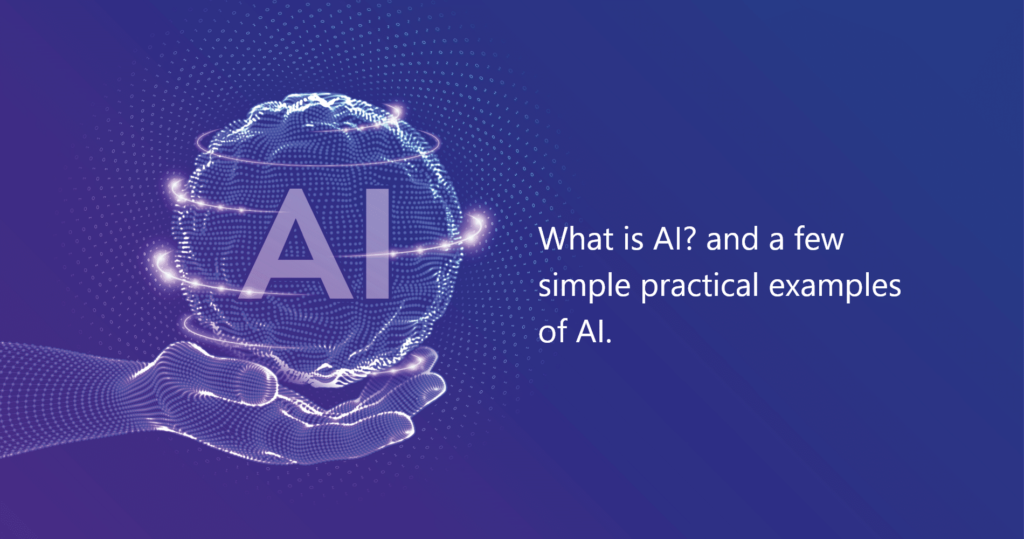Artificial Intelligence (AI) is a broad field of computer science focused on developing machines that can perform tasks that typically require human intelligence, such as learning, problem-solving, decision-making, and language processing. AI is rapidly transforming the world we live in, from chatbots that can provide customer service to self-driving cars that can navigate complex environments.
In this blog post, we’ll explore what AI is and provide some simple practical examples of AI in action.
What is AI ?
AI is the ability of machines to perform tasks that would typically require human intelligence, such as understanding natural language, recognizing patterns, and making decisions based on data. There are three main types of AI:
- Artificial Narrow Intelligence (ANI): This is AI that is designed to perform a specific task, such as playing chess or driving a car.
- Artificial General Intelligence (AGI): This is AI that can perform any intellectual task that a human can, and possibly more.
- Artificial Super Intelligence (ASI): This is AI that is smarter than the smartest human being and can perform tasks beyond human capabilities.
Examples of AI
Virtual assistants:
Virtual assistants are computer programs that use natural language processing (NLP) to understand and respond to user requests. They can perform tasks such as setting reminders, playing music, or answering questions. Virtual assistants work by analyzing the user’s request, interpreting its meaning, and taking appropriate action. Some popular virtual assistants include Siri, Alexa, and Google Assistant.
Recommendation systems:
Recommendation systems are used by companies such as Amazon and Netflix to suggest products or content to users based on their past behavior. These systems use machine learning algorithms to analyze data such as the user’s purchase history, browsing behavior, and ratings to generate personalized recommendations. Recommendation systems can help users discover new products or content that they may be interested in and can improve customer engagement and loyalty.
Autonomous vehicles
Autonomous vehicles, also known as self-driving cars, use sensors such as cameras and radar to perceive their environment and make decisions based on that information. They use machine learning algorithms to analyze sensor data and make decisions such as when to accelerate or brake, when to turn, and how to avoid obstacles. Autonomous vehicles have the potential to reduce accidents, improve traffic flow, and increase mobility for people who are unable to drive.
Fraud detection
Fraud detection is an important application of AI in the financial industry. Fraud detection systems use machine learning algorithms to analyze large amounts of data, such as transaction history and customer behavior, to identify patterns and anomalies that may indicate fraudulent activity. These systems can flag suspicious transactions for further investigation, helping to prevent financial losses and protect customers.
Image recognition
Image recognition is the ability of a machine to identify objects or people in images. This technology is used in a variety of applications, from security cameras and facial recognition software to medical imaging. Image recognition algorithms work by analyzing the features of an image, such as color, texture, and shape, and comparing those features to a database of known objects or faces
Chatbots
Chatbots are computer programs that use NLP to understand and respond to user inquiries. They can be used for customer service, sales, or even as virtual assistants. Chatbots work by analyzing the user’s message, interpreting its meaning, and generating a response. They can provide 24/7 support to customers and improve customer satisfaction and engagement.
AI Development
AI is a rapidly evolving field with tremendous potential to transform the way we live, work, and interact with technology. From virtual assistants and recommendation systems to autonomous vehicles and fraud detection, AI is already making an impact in our daily lives. As AI continues to advance, we can expect to see even more exciting developments in the years to come.







